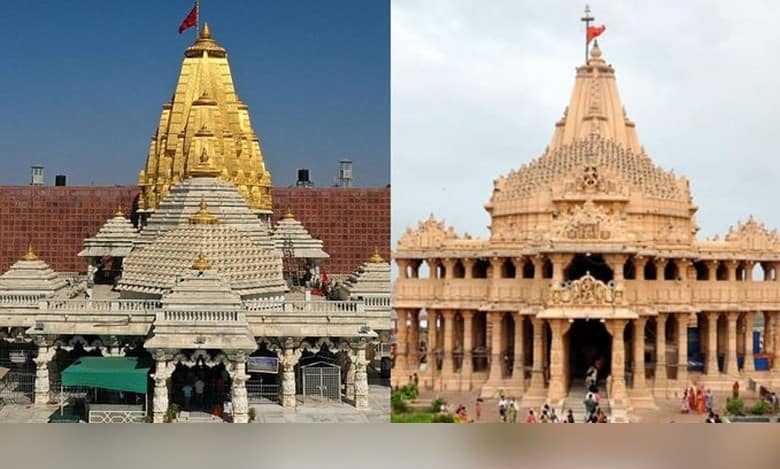In a display of support for the Gold Monetization Scheme (GMS) introduced by the Union government, two prominent temples in Gujarat, Ambaji Temple and Somnath Temple, have collectively deposited close to 200 kg of gold in public sector banks.
The initiative aims to unlock the value of gold holdings and put them to productive use for the benefit of the temples and the economy as a whole.
A recent study conducted by the India Gold Policy Centre at the prestigious Indian Institute of Management, Ahmedabad, sheds light on the reluctance of retail consumers to monetize their gold holdings. The study reveals that a mere 0.22 percent of the surplus gold held by Indian households is being monetised through the GMS.
However, the Ambaji Temple and Somnath Temple have bucked the trend by depositing a substantial amount of gold in public banks, collectively amounting to nearly 200 kg. At current prices, this translates to gold deposits worth an impressive Rs 120.6 crore.
The government has been actively encouraging temples to deposit the gold they receive as donations in banks under the GMS. This initiative allows the temples to earn interest on their gold deposits, offering a viable option for the temples to utilise their gold assets effectively. Under the scheme, medium-term deposits earn an annual interest rate of 2.25 per cent, while long-term deposits earn an interest rate of 2.5 per cent per annum.
The Ambaji Temple Trust has emerged as a frontrunner in gold deposits, having already deposited 168 kg of gold in three phases. In the first two phases, the trust deposited 96 kg and 23 kg of gold, respectively. Additionally, around 140 kg of gold has been utilised to adorn the temple’s spire, adding to the splendor of the sacred place. The Somnath Temple has also actively participated in the scheme, utilising the gold accumulated through donations to gold plate the temple spires.
